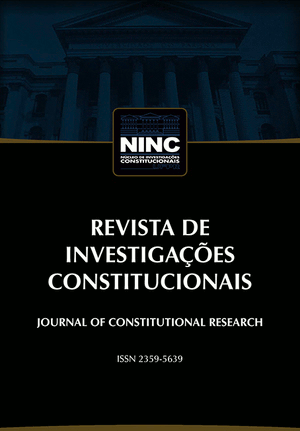Abstract
This article aims to investigate how collegiate judgments occur in the Brazilian Supreme Court, especially if there is effectively deliberation, dialogicity and opposition of arguments. To achieve this goal, a critical-methodological line is adopted, based on bibliographic research, analysis of quantitative and qualitative research already carried out, qualitative research on the judgment of a case by the Supreme Court and documentary research, based on the analysis of statistical data made available. It is concluded that the external, aggregative and seriatim model, adopted by the Brazilian Constitutional Court, is still preferable to a model of collegiate judgments behind closed doors, and that the problem of collegiate judgments in the Supreme Court is not in the adopted model, but in its practices, as it produces decisions taken in a solipsistic, little deliberative way and without internalizing the differences.
Keywords:
Brazilian Supreme Court; collegiate judgments; seriatim model; aggregative model; solipsism
